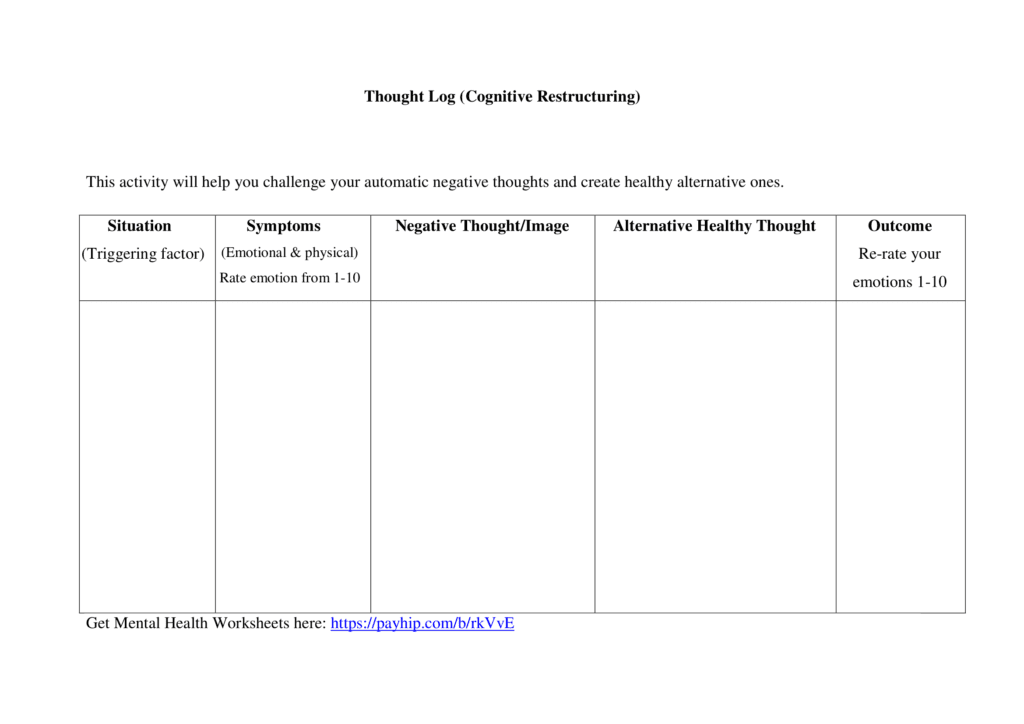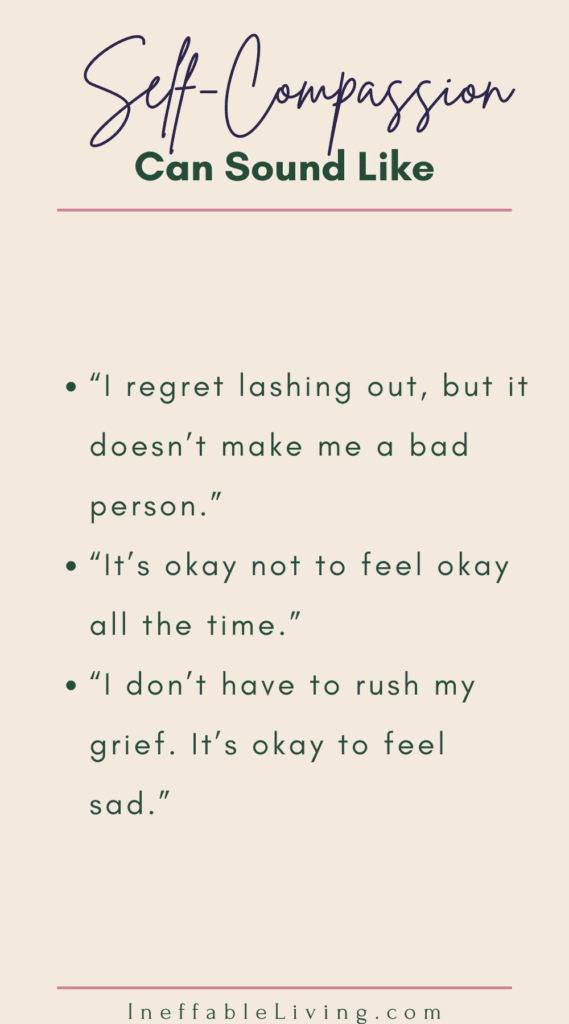This post contains some of the best tips on letting go of perfectionism.
Perfectionism pays off … sometimes.
A little bit of perfectionism can improve the quality of your work, and life in general as long as you don’t let it get out of hand.
But what happens when perfectionism gets too extreme?
Perfectionists often become procrastinators, trying to avoid making mistakes.
They often develop various types of anxiety disorders, depression, eating disorders, and other psychological and physical ailments.
It was even shown that adolescents who suffer from perfectionism have a higher rate of suicide.
If you:
* believe you have to be the best in everything you do,
* feel horrible when you make mistakes, or
* refrain from trying if you’re not outstanding at something,
then you might be a perfectionist.
A good cost/benefit analysis can show how perfectionism exacts a terrible toll.
But if not perfect, does that mean you would become a sloth with no standards at all?
The alternative of letting go of the need to be perfect is not the other extreme!
3 Perfectionist Personality Traits
P. L. Hewitt and G. L. Flett (1991) have identified three personality traits that can help understand perfectionism.
Self-oriented perfectionism: Involves self-imposed expectation of perfection and unrealistically high standards for yourself. This causes you to become self-critical and unforgiving toward yourself.
Other-oriented perfectionism: Involves unrealistic expectations and standards of others. You are critical of others and can easily find fault in them. This causes you to feel constantly disappointed and angry that others aren’t living up to your expectations.
Socially prescribed perfectionism: This is when you believe that others have high expectations of you and expect perfection from you.
Perfectionism usually involves a combination of the three perfectionist personality traits.
14 Perfectionism Symptoms
Which of these traits describe you?
- You set exceptionally high standards for yourself.
- You’re highly self-critical.
- You never feel you did enough; there’s always more to do.
- You base your self-worth and value on your accomplishments.
- You have high standards for others and are critical of them when they don’t live up to these standards.
- You feel others have unrealistic expectations of you.
- You’re afraid of disappointing people.
- You’re concerned about making mistakes.
- You’re sensitive to criticism and work hard to avoid it.
- You dwell on your mistakes and imperfections.
- You procrastinate or don’t start things especially when you don’t think you can do them perfectly.
- You play it safe and don’t like trying new things, especially when there is a chance of failure.
- You have trouble being happy for others’ success.
- You want to feel in control at all times.
Letting Go of Perfectionism: Best 20 Tips
#1. Make a List of The Benefits and Pitfalls of Perfectionism
How Perfectionism Is Serving You?
Perfectionism helps you avoid fear.
Behind all the efforts to prove yourself worthy, there is a deep need to be accepted and valued.
Perfectionists don’t view failure as an event, but they believe it’s their identity and view it as proof that they’re inadequate.
They would do anything to avoid failure and criticism, even when that means sticking to what feels safe or not trying at all.
The decision to become less perfect can be a difficult one. Making a list of the pros and cons of perfectionism can make it easier for you to make that decision:
1. Write a list of all that your perfectionism provides and another one of all that your perfectionism takes from your life.
2. Rate each benefit and pitfall on a scale of 1 to 5 according to its overall impact on your life.
3. Once you finish, count each list’s score.
The following is an example:
| Benefits of Being a Perfectionist | Pitfalls of Being a Perfectionist |
|---|---|
| 1. It makes me feel superior at times . . . . . . . . . . . . 1 2. It makes me feel in control . . . . . . . . . . . . 2 3. My life is often orderly and structured . . . . . . . . . . . . 3 4. I accomplish a lot in a little time . . . . . . . . . . . . 3 | 1. I don’t have enough time for myself because I’m always doing . . . . . . . .4 2. I can become rigid and critical with my loved ones when I try to be perfect . . . . . . . . . . . .5 3. The stress that comes with perfectionism is affecting my mental and physical health greatly . . . . . . . . . . .5 4. I often end up taking on responsibility that isn’t mine. . . . . . . . . . . . 4 |
| Total: 9 points | Total: 18 points |
Related: How to Challenge and Change Your Negative Core Beliefs?

#2. Recognize The Difference Between Excellence and Perfectionism
Perfectionism involves unrealistically high standards.
While standards serve a purpose – they encourage us to do quality work and solve problems, high standards are not the same as perfectionism.
The quest for excellence is a healthy striving to be above average. It allows for imperfections and mistakes and views them as room for improvement.
Perfectionism, on the other hand, doesn’t allow for mistakes or imperfections, and perfectionists are excruciatingly hard on themselves when they make a mistake.
Because of this way of thinking, perfectionists get stuck on the negatives and never learn from their missteps.
When you strive for excellence, you expect 100 percent from yourself and others. That doesn’t mean that you expect perfection, but you expect to do the best you can do, given the circumstances.
#3. Identify Your Fears
Perfectionism constitutes a way for us to cope with and minimize anxiety-provoking situations and fears, such as fear of failure, fear of criticism, and fear of rejection.
Fear in and of itself is a natural and healthy emotion. It helps us protect ourselves when we’re in danger. However, fear becomes toxic when danger is perceived and not real.
This is particularly true when you’ve experienced trauma. After such an experience, we develop a heightened sensitivity to protecting ourselves from being hurt again. We feel afraid even when there is actually little or no danger. It becomes challenging to distinguish between real and perceived danger.
As a perfectionist, your fears are not of physical harm, but of emotional harm. But you may react to situations where you might be criticized, rejected, or embarrassed as if you had a tiger chasing you.
When such situations are perceived as dangerous, we let fear drive us and we underestimate our ability to cope with setbacks.
The more you try to avoid facing your fears, the more it increases. In other words, the only way to overcome these fears is to confront them.
Related: Dealing With Avoidance: How to Calculate Risks And Overcome Fear In Life?
#4. Identify The Underlying Problem
Perfectionism is not the problem, rather it’s a coping mechanism that served you well in the past, but it is no longer helpful.
Perfectionism as a compulsive pattern is not present at birth.
It develops as a response to stress, which is then reinforced through repetition and approval from other people.
Several issues can increase the likelihood of developing perfectionism:
1. Lack of Trust
When parents fail to meet the child’s basic needs for safety, intimacy, and consistency, the child learns that he cannot trust his environment the way it is, and might try to learn to control it.
As a result, he might work to find behaviors that work to get the attention he seeks.
The need to control is always a response to the fear of abandonment, which from the child’s perspective means death.
2. Lack of Identity
Discovering who we are, usually starts with our parents mirroring our personalities, interests, and physical attributes.
When the child isn’t allowed to be who he is with appropriate guidance and safety, the child has to be what is expected of him in order to feel connected to and accepted by his parents.
3. Shame
Shame is one great factor contributing to perfectionism.
As children, perfectionists may have been called names: worthless, loser, good-for-nothing, and worse. They might also have consistently heard statements such as:
“You’ll never be good enough.”
“Why can’t you be like your brother [or sister]?”
“Why didn’t you get an A?”
“What will people think?”
“I’m so disappointed in you.”
Related: 10 Signs You Were Shamed In Childhood
When a child feels flawed, he needs to compensate for the sense of worthlessness.
As a result, he may work hard to become compliant and achieve to cover his inadequacies.
#5. Face Your Shame
We feel shame when we believe that we’re inadequate and that something is wrong with us.
Perfectionism can act as a protective shield to keep others from, seeing, judging, and rejecting us because of our imperfections and shortcomings.
This is mainly fueled by unrealistic expectations of ourselves – that we can and should be perfect and without fault and that others also hold us to the same standards that we have.
We live in hiding and avoid anything that may result in a mistake or failure.
The way to overcome this shame is by coming out of hiding and revealing our imperfections to safe people.
You need to start embracing mistakes and seeing them as human but also as proof that you’re fully living and trying new things.
Related: How To Let Go Of Shame After Trauma?
Antidotes for a Shame Attack
1. Externalize. Talk about it or write it down, say to yourself, “I am not my shame. This is a feeling that will pass.”
2. Read or listen to helpful materials. Keep handy books and videos that have helped you before overcome a shame attack.
3. Postpone major decisions until you are in better shape. Don’t act on the pain.
4. Visualize yourself giving back any of the shame that does not belong to you. Imagine returning negative messages to those who gave them to you (e.g., parents, partners, bosses).
5. Practice self-care until you feel less vulnerable. Breathe, meditate, go outdoors, take walks, exercise, or get yourself a massage.
#6. Identify Your Distorted Thoughts
Most fears are the result of distorted thoughts.
Cognitive-behavioral therapy states that when you change your negative and unrealistic thoughts (often called “cognitive distortions,” “negative automatic thoughts,” or “irrational beliefs”), you begin to act in more helpful ways and end up feeling better.
Perfectionist fears are the result of different cognitive distortions. The following are some of the most common ones:
1. All-or-Nothing Thinking: You look at things in absolute. If you fall short of a certain goal, you conclude that you are a total failure as a person.
2. Overgeneralization: You decide that a negative experience, a specific flaw, or a mistake describes your life completely.
3. Mental Filtering: You focus entirely on the negative aspects of a situation while ignoring the positive aspects. Soon, the whole situation looks negative.
Examples of mind filtering could go along these lines: “How can I feel good for the rest of the day now that I have been criticized?” or, “How can I enjoy my life when my children have problems?” or, “How can I enjoy my meal when the steak is burnt?”
4. Discounting the Positive: You tell yourself that your accomplishments or positive qualities don’t count.
5. Fortune Telling: You make disturbing predictions about your future. This usually triggers feelings of hopelessness and sometimes even leads to suicidal thoughts. If you’re feeling down, you may tell yourself that things will never change and that you’ll always feel this way.
6. Mind Reading: You jump to conclusions regarding others’ thoughts and feelings without any clear evidence.
7. Magnification and Minimization: You exaggerate the negative and minimize the positive in a certain situation.
8. Emotional Reasoning: You turn your feelings into facts. For example: “I feel worthless, I must be worthless,” or, “I feel like I’m on the verge of a nervous breakdown, so I must be in real danger.”
9. Labeling: You try to capture the “essence” of yourself or someone else with a label. It is an extreme form of overgeneralization. For example, you might call yourself “stupid” or “loser” instead of saying, “I made a mistake.”
10. Magical thinking: You think everything will be better when….. (you’re thinner, smarter, richer; when you are in a relationship, when you get a new job, and so on).
11. Should statements: You judge yourself for what you should be doing.
Identifying your cognitive distortions is the first step to challenging them and replacing them with more realistic and helpful thoughts.
#7. Challenge Your Distorted Thoughts
Cognitive reframing is a technique of four-step process that will help you replace your distorted thoughts with more realistic and helpful ones.
Step 1: Notice your negative thoughts.
Step 2: Check for distortions. Which cognitive distortion your negative thought fits? The most important thing is to notice the distorted thought, you don’t have to overthink which types it is.
Step 3: Challenge the distortion. Look for evidence to support or refute your negative thought.
You can do this by asking yourself these questions:
- Is this thought helpful?
- Am I overgeneralizing?
- Am I making assumptions?
- Am I assuming the worst?
- Are there exceptions to these absolutes (always, never)?
- How do I know if this thought is accurate?
- What evidence do I have to support this thought?
- Do I have a trusted friend with whom I can check out this thought?
- Am I blaming myself unnecessarily?
- Is it really in my control?
- Am I making this personal when it isn’t?
- Is this a realistic expectation?
- What would I say to a friend in this situation?
- What or who else contributed to this situation?
- Are there other ways that I can think of this situation or myself?
Step 4: Replace the distorted thought with a more realistic and helpful one.
Free Reframing Negative Thoughts Worksheets

Related: 10 Powerful Techniques To Control Your Negative Thoughts
#8. Collect Evidence That Refutes Your Perfectionism
Try thinking about the people you admire, yet who make numerous mistakes over time.
Ask yourself, “When they make mistakes, do I suddenly see them as defective?” Doubtful.
Use the same standard for yourself.
#9. Create a List of Individual Values
To help you make the decision of letting go of perfectionism, consider the first exercise and think about how important the benefits are for you.
Ask yourself if these benefits are in line with your values and what you think is important in life.
The following are some examples. You want to choose and add the ones that are most relevant to you.
Individual Values
- Peace of mind
- Emotional security—that you are okay
- Gratitude for who you are and what you have
- Quiet time for yourself
- Having faith in something more than yourself
- Finding and using your gifts
- Enjoying life, having fun, and playing
- Taking risks to learn new things
- Being a loving person
- Being real and authentic
- Being physically healthy
- Learning and growing
Friendships and Family Relationships Values
- Regular, positive contact with loved ones
- Showing vulnerabilities to loved ones
- Showing up for others
- Asking for what you need
- Being able to say no when you need to
- Having fun and adventure
Intimate Relationships
- Being equal
- Being interdependent
- Validating yourself and your partner
- Being open and honest about who you are and what you need
- Giving and receiving affection every day
- Being vulnerable and authentic
- Show up for yourself and your partner when it matters
- Commitment
- Sharing successes and painful times
Work, Career, or School
- Finding balance with your personal life
- Working in a setting that fits well with your personality
- Using your gifts and talents
- Being paid what you are worth
- Trying and learning new things something new
- Asking for what you need
If you find it hard to choose the most important values to you, try asking yourself, “If I had one year to live, what would be most important to me?”
Related: Top 10 Books About Perfectionism
#10. Find Courage to Face Perfectionism
Courage is the antidote to perfectionism.
Courage in the face of perfectionism can take many forms:
- Taking chances and trying something new
- Tolerating mistakes
- Sharing our mistakes rather than hide
- Accepting our imperfections
- Allowing safe people to see our imperfections
- Asking for what we need
Courage is a skill that you practice. This means repeatedly doing things beyond our comfort zone.
#11. Give Up Your Perfectionism One Day At A Time
You don’t have to do this perfectly.
Making the decision to give up your perfectionism is something you will do many times over in the days and months ahead.
This is an overall goal to reduce perfectionism in your life and start living in the middle.
If you still aren’t sure if this is an issue for you, try asking people who know you and care about you if they think your perfectionism is a problem.
Related: Learning To Love Yourself: 30 Day Self-Love Challenge
#12. Start Doing and Enjoying Imperfect Things
As a perfectionist, you might find it hard to come up with ideas of imperfect activities you can do more of.
The following is a list of some examples:
- Play old music and dance without worrying about how you look.
- Play crazy games with a friend for fun, not competition.
- Watch children’s movies or read children’s books.
- Schedule “breathing breaks” several times during the day. Take a few deep breaths or do something enjoyable for a minute.
- Choose a list of self-care activities and do one every day.
- Deliberately leave something unfinished every day.
- Simplify and do one thing at a time.
#13. Stop Criticizing Yourself
We are constantly talking to ourselves. We become so accustomed to the steady stream of thoughts that we stop noticing them.
However, our self-talk is important. It reflects our beliefs about ourselves and the world and influences our feelings and behavior.
Most perfectionists hold a core belief that they’re not good enough. Therefore they feel a need to constantly do more and be more.
They create unrealistic expectations for themselves and when they inevitably fail to meet them, they face this sense of failure with harsh self-criticism. This further reinforces their beliefs of inadequacy and ineptitude.
While most of us find it easy to offer an encouraging word or a kind gesture to others, we may not find it as easy to do the same for ourselves.
Most of us believe that we’re different and inferior and don’t deserve to be treated in the same compassionate way we’re willing to treat others.
Isn’t Self-Criticism Motivating?
One of the main reasons why we criticize ourselves is that we worry that forgiving ourselves and treating ourselves with compassion will allow for more mistakes and failures.
But ask yourself, “Has criticizing yourself made you feel any better or helped you take effective action?”
Self-criticism increases our feelings of anxiety, depression, and even shame. It makes us feel bad about ourselves and it’s really hard to perform better when we’re feeling awful about ourselves.
Compassion and encouragement, on the other hand, help us make peace with our mistakes and failure and resolve to do better next time. Rather than wasting our time and energy berating ourselves, we are actively engaged in finding ways we can make better choices next time.

#14. Practice Self-Compassion
Self-compassion is not selfish and it’s not a weakness, either.
Self-compassion means giving yourself the same understanding and kindness that you might give a friend.
This includes taking care of your body, talking to yourself kindly, forgiving yourself when you falter, etc.
In her book Self-Compassion, Kristin Neff, Ph.D., identifies three parts of self-compassion:
(1) self-kindness rather than judgment or criticism;
(2) recognition of our shared humanity, meaning that we feel connected to others in our shared struggles; and
(3) mindfulness, so that we are aware of our feelings, without minimizing or exaggerating our pain (2011, 41).
The first step is to notice that we’re having a hard time.
Perfectionists tend to deny their struggles and pain and view them as proof of their inadequacies.
Acknowledging your pain means mindfully paying attention to the physical sensations in our bodies, our thoughts, and feelings.
This could be noticing that you’re irritable and physically exhausted or thinking, I’m having a hard day.
The next step is to think about what would you tell or do for a friend in the same situation, and do it for yourself.
Related: Top 19 Journal Prompts For Perfectionists

#15. Practice Self-Forgiveness
Perfectionists tend to set unrealistic expectations and are constantly disappointed when they fail to meet them.
As with treating ourselves with compassion, forgiving ourselves normalizes mistakes and recognizes our shared humanity: the fact that we all make mistakes, and just as we would encourage other people to forgive themselves, we need to forgive ourselves, too.
Forgiveness doesn’t mean we are allowing ourselves to make more mistakes and failures. It means we accept our mistakes, take responsibility for them, make things right, repair any damage, and commit ourselves to learning from them.
It’s much harder to do these things when we’re beating ourselves up for our imperfections and mistakes.
But self-forgiveness is more of a process than an event. You need to practice gradually as you release self-criticism and work toward understanding why you made the choice you did.
Take Positive Action
Acknowledging our mistakes and taking responsibility for them doesn’t mean we’re punishing ourselves. It means we’re learning something from them, giving an apology, making amends, or doing something good in the world.
A quality apology includes three parts
(1) taking responsibility for our actions and their impact,
(2) expressing regret, and
(3) offering to fix things and make amends.
Related: How To Forgive And Free Yourself From Resentment And Bitterness?
#16. Focus on Your Strengths
Perfectionists tend to be hyperaware of their faults and imperfections but quick to dismiss their strengths and positive attributes. This creates an inaccurate perception of ourselves and contributes to our tendency to self-criticize.
Use the following list to identify at least five of your strengths:
a lifelong learner – a team player – able to keep things in perspective – adaptable – appreciative of the small things – attentive to detail – authentic -brave – creative – confident – consistent – curious – determined – disciplined – empathetic – energetic – focused – hardworking – honest – hopeful – humorous – independent – generous – gracious – kind – loyal – open-minded – organized – patient – playful – positive – practical – prudent – self-aware – spiritual – spontaneous – responsible – thoughtful
If you have trouble identifying your strengths, try answering the following questions:
- What strengths have contributed to your successes?
- What activities or roles do you enjoy?
- Which of your personality traits reflect your values?
- What strengths do your friends and family see in you?
Related: Root Cause Of Perfectionism (top 5 Causes)
#17. Start Accepting Compliments
Accepting compliments doesn’t make you narcissistic or vain. Most compliments are given freely and accepting a compliment brings joy not just to you, but also to the giver.
Remind yourself that someone has recognized something positive about you and wanted to let you know.
Simply respond by saying, “thank you,” or, “I appreciate your kindness,” or even, “I’m happy about that, too.”
If you don’t entirely believe them, you may allow yourself to think about it and look for some truth in it.
Related: Building Self-Confidence: How To Gain Confidence Quickly And Improve Your Self-Esteem?
#18. Give Yourself Compliments, Too
As a perfectionist, giving yourself compliments when you do well and achieve something may sound unfamiliar.
You may find yourself dismissing the effort or progress you made and reminding yourself of all the times you made mistakes or failed.
Notice when you get caught up in this way of thinking.
It’s totally valid to compliment yourself for meeting a deadline, for example, even if you didn’t manage to do it last week.
Related: Top 30 Affirmations For Perfectionism (+FREE Worksheets)
#19. Use Positive Affirmations
You may find it helpful to remind yourself of the following statements, each time you start to get hung up on perfectionism:
- I am supposed to make mistakes—I was made that way.
- It’s great to do well at things, but it’s unrealistic to expect that I have to be the best at everything.
- No one can be good at everything, and sometimes it’s really fun to try and learn something new.
- Everyone makes mistakes. It’s part of the learning process, and I need to face these mistakes and learn from them.
- My humanness makes it easier for others to love me and reach out to me.
- What I’m doing is good enough.
In other words, try to think in less extreme terms. A more balanced, realistic viewpoint is that it would be great to do things well, but that all humans make mistakes and so do you.
#20. Building a Strong Support System
A combination of counseling or therapy, self-help materials, and a strong and ongoing support system can be the best formula to overcome perfectionism.
Work on opening up and asking for help from your close friends and safe family members.
Related: Struggling to Receive? 7 Steps to Open Up and Start Accepting Loved and Support
Overcome Procrastination
Although some people may find it hard to believe that perfectionists procrastinate given how much they work, their own perfectionist thinking and fear can be the main reason why they procrastinate.
Why We Procrastinate?
We feel Overwhelmed
Perfectionism increases the pressure because we not only expect to ourselves to do all the things we take on but we expect ourselves to do them perfectly.
When we try to prove ourselves by taking on new projects and responsibilities, we may experience analysis paralysis—an inability to make decisions or take action because we feel overwhelmed by the number of choices we have.
Perfectionist Thinking
Some perfectionist thoughts that contribute to procrastination may include:
- If it’s not perfect, it’s not worth doing.
- What if I mess up?
- Mistakes are unacceptable.
- If I can’t do it perfectly, why try?
- I’m not good at….
- If it’s this hard, I must be incompetent.
- I’ll probably embarrass myself.
Such thinking prevents us from trying new things and stretching ourselves. It increases fear and leads to avoidance and procrastination.
Fear
Perfectionist thinking increases fear of failure, rejection, and criticism and so we end up avoiding certain tasks and situations altogether.
How to Overcome Procrastination?
#1. Challenge Your Perfectionist Thinking
You can change the way you feel about a certain task by changing your thoughts about it.
For example, you can replace, “This is so hard. I can’t do this,” with, “This is challenging, but I can learn new things.”
#2. Recognize Partial Successes
If you miss a dance class, for example, rather than seeing this as a failure, you may decide to go for a thirty-minute walk.
This partial success will keep you from falling into disappointment and procrastination in the future.
This also helps you avoid all-or-nothing thinking, meaning framing things only as “success” or “failure.”
#3. Try The Five-Minute Rule
If the task seems difficult and time-consuming, you may find it helpful to commit to doing it for five minutes every day.
For example, if you need to declutter your house, you may commit to doing it for just five minutes—and then you can quit if you want.
#4. Break It Down
It’s motivating and more effective to break down a goal or a project into smaller tasks.
#5. Start With The Hardest Task
It might be satisfying to check things off our list, even if they were small tasks, but we may end up wasting so much of our time and energy on things that don’t bring us so much value and have little time and energy left for challenging and important projects.
Getting the most difficult tasks done first will help you procrastinate less and get more value.
#6. Use The Mantra “Done Is Better Than Perfect”
You can reduce feelings of overwhelm by reminding yourself that “done is better than perfect.”
Most of the things we don’t need to be flawless, like cooking dinner, cleaning the house, washing your car, getting dressed, etc.
When you have a lot to do and little time to do them perfectly, it’s important to choose between done and perfect. Ultimately, it’s better to get dressed imperfectly, than to be late or miss the appointment altogether.
#7. Minimize Distractions
Try to make it easier to get the desired task done by avoiding or minimizing distraction.
First, notice what distracts you and create a plan to address that.
For example, if you keep checking your phone while working, try to put it in another room or leave it at home and go to the library.
FAQ
1. Is Perfectionism A Mental Disorder?
Perfectionism is not a mental disorder. It is a personality trait.
However, perfectionism may lead to other mental disorders like depression or anxiety.
Some people may use the terms “perfectionist” and “OCD” interchangeably. However, obsessive-compulsive disorder (OCD) is characterized by intrusive thoughts and/or repetitive behaviors, while perfectionism is a personality trait that’s characterized by high expectations and standards.
2. Why Perfectionism Is Not Helpful?
The reason why you hold onto perfectionism is that you believe it’s serving you. This is why becoming aware of the different ways perfectionism is hurting you will help you commit to the decision of overcoming it.
Stress
When your nature is to demand a lot from yourself and put so much pressure on yourself, stress can become a chronic issue.
The problems stress can cause may not be obvious to you, but signs of stress may include: experiencing aches and pains, muscles tension, trouble sleeping, gastrointestinal problems, anxiety, and depression.
Stress can also cause short temper and difficulty managing your emotions. You may blow up over seemingly small problems, or you may become detached from your emotions, numbing yourself to avoid feeling difficult emotions, such as anger, frustration, hurt, fear, etc. This often leads to depression.
Perfectionism can also make it hard for you to recover from setbacks whether they were personal failures or changes in your environment like the death of a loved one.
Missed Opportunities
Because perfectionists tend to stay busy most of the time, they end up missing out on a lot in life.
They may even choose to convince themselves that they don’t want these things rather than face their fear of failure and rejection.
These fears, eventually, begin to limit your life as you find yourself avoiding anything that doesn’t feel comfortable enough. This may involve doing things like public speaking, pursuing a higher degree, pursuing a fulfilling relationship, etc.
Relationships Issues
Perfectionism can make you prioritize work over play and relationships.
But in addition to quality time, relationships also require intimacy and vulnerability, which can be difficult when you use perfectionism as a shield to keep people from seeing the parts of you that you feel are less than perfect.
Even though you may crave intimacy, the fear that you are not good enough will convince you to keep your imperfect self hidden.
3. How Perfectionism Develops?
Although there isn’t one single cause of perfectionism, the following factors may have impacted your beliefs about yourself and the expectations you have for yourself:
Demanding Parents
Many parents would demand perfection from their children.
These parents value achievements and see their children as a reflection of themselves. Therefore, they drive some of their own self-esteem from their children’s success and would feel embarrassed when their children are less than perfect.
The children get the message that they need to live up to their parents’ expectations or there will be dire consequences.
These children also learn that love is conditional and that they are lovable only when they please others.
Perfectionist Messages from Media and Culture
Culture and media also have a great impact on our development and on encouraging perfectionism tendencies.
We learn that we have to be perfect and be the best because life is a competition.
Technology had blurred the line between work and time off. Now we can work 24/7.
Technology has also filled our feeds with images and messages from the media of what we’re supposed to look like and what we’re supposed to be doing.
Individual Traits
Researcher and psychotherapist Elaine Aron. Ph.D. found that 15–20 percent of the population is naturally highly sensitive to the world around them.
This suggests that perfectionists may have an innate temperament or sensitivities that predispose them to perfectionism.
In her newsletter, Aron wrote, “HSPs tend to be perfectionists for two reasons. First, we don’t like unpleasant surprises, such as criticisms, making a mistake, hurting others, or having something go very wrong. To avoid these, we try to plan, arrange, and do things perfectly.… Second, we tend to be perfectionists because we can envision how something could be done perfectly and aim for that” (2004).
As a child, if you didn’t develop a sense of safety and secure attachment, you’re likely to feel insecure and have an unmet need for acceptance, which fuels perfectionism.
Related: Are You a Procrastinator Quiz? (+ Best 40 Tips To Stop Putting Things Off)
Conclusion
It is natural for us to strive to overcome our human imperfections.
No one likes to make mistakes or show their flaws.
And while there is nothing wrong with trying to be the best we can be, when perfectionism becomes a compulsion and not a choice, it becomes problematic.
References
- Portions of this article were adapted from the book Overcoming Perfectionism: The Key to Balanced Recovery, © 1990 by Ann W. Smith. All rights reserved.
- Portions of this article were adapted from the book The CBT Workbook for Perfectionism, © 2019 by Sharon Martin All rights reserved.
- Perfectionism among young people significantly increased since 1980s, study finds (apa.org)
- The Pros and Cons of Perfectionism, According to Research (hbr.org)
- (PDF) The psychology of perfectionism: Critical issues, open questions, and future directions (researchgate.net)
- Positive and negative perfectionism and their relationship with anxiety and depression in Iranian school students – PMC (nih.gov)
- The effects of perfectionism on mental and physical health (medicalnewstoday.com)
- Perfectionist Traits: 10 Signs of Perfectionism (verywellmind.com)
- Perfectionism (psychology) – Wikipedia
- How to Manage Your Perfectionism (hbr.org)
- Perfectionism | Psychology Today
- How to Overcome Perfectionism – Anxiety Canada
- What Is Procrastination? (verywellmind.com)
- Why You Procrastinate (It Has Nothing to Do With Self-Control) – The New York Times (nytimes.com)
- Frontiers | On the Behavioral Side of Procrastination: Exploring Behavioral Delay in Real-Life Settings | Psychology (frontiersin.org)
- Procrastination or ‘intentional delay’? (apa.org)




